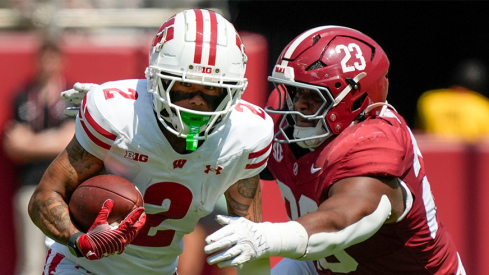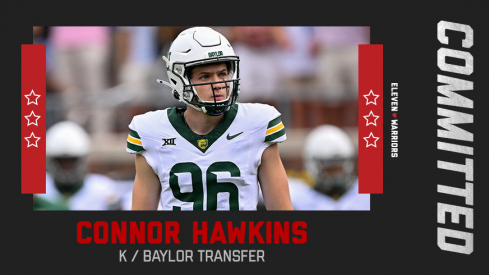
Hello, Buckeye fans. Remember me?
Since my suspension, I've had a lot of time to devote to life's other pursuits and lately, I've taken up consulting for power programs.
I often counsel college coaches on ways to evade alleged NCAA recruiting regulations. How does one do that? My advice is simple: Be an ostrich. Bury your head in the sand.
For instance, I assisted a certain client in a sport with a spherical ball in developing his recruiting strategy. I will not disclose my client's identity so as to not betray his confidence. Nonetheless we have developed the following strategy, which has proven to be a successful method to skirt NCAA detection. I therefore believe it helpful to illuminate that coach's success.
This coach does not use antiquated tactics such as engaging with boosters to pay players. He instead uses a more circuitous method. He is represented by an agency that we will call this agency "BAAH." BAAH maintains relationships with runners – or bag men, if you will.
The most famous of such bag men goes by his very own acronym (makes it more corporate) and is associated with BAAH. These runners, often individuals of ill-repute, develop relationships with young men on the AAU circuit that exhibit potential. The runner will then steer that player toward's my client's school.
Boosters create serious problems in investigations; however, these "friends" of the players are free to provide their helpful advice. In return, all my client has to do is prevent other agencies from recruiting those players once they get to campus. Then, when that player is ready to enter the draft, my client will encourage the player to retain BAAH. This is not a difficult sell – the players still have the relationship with their runner. In exchange for the promotion of the same agency that he himself retains, my client gets easy access to some of the finest athletic talent in America.
And the beauty of this design is that my client is two layers removed from any alleged NCAA violations. These runners are not formally retained by the agency. Instead, the relationships between the runner and agency often continue with a wink and a nudge. This strategy has many of the same advantages as the organized crime. The boss is several levels removed from any illicit activities. He can truthfully assert that he does not know the full extent of what took place. A sheep in sheep's clothing really.
And if the NCAA does begin an investigation my advice is simple. Dig in your heels and deny everything. The NCAA does not have subpoena power and is reliant upon its member schools for information. Obviously fear of public spectacle and loss of game revenue in the event of sanctions is a daunting prospect for any D-I program. Don't let the fear control the investigation. An "allegation" is nothing more than a rumor. Even when it is given access to information, the NCAA is generally so incompetent that it is as likely to botch the investigation as to actually uncover wrongdoing. Indeed, the NCAA is so incompetent that it cannot even conduct an investigation of itself. As such, the outlook is bright for those interested in implementing such policies.
Finally, proper communication is key. If you must communicate with a coach, be sure to hit them up on their AOL account. All major coaches have an AOL account and these accounts are shielded from state open records requests.

